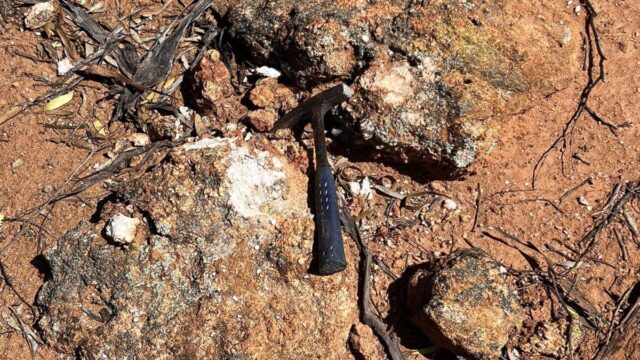Metal Hawk (ASX: $MHK) provides yarmany exploration update and new tenement acquisition
- Author: Stock Piper

Metal Hawk Limited (ASX: $MHK) Yarmany Project Exploration Update
Metal Hawk Limited (ASX: $MHK) has completed the first phase of a regional aircore drilling campaign at the Yarmany Project in Western Australia. The campaign involved drilling 136 holes for a total of 5,724m, primarily targeting lithium, nickel sulphide, and gold mineralisation along the Ida Fault. The company has also acquired new tenements to the south of the project, covering over 35km2 with untested mapped pegmatite occurrences.
Metal Hawk Managing Director's Commentary on Yarmany Exploration Update
Metal Hawk's Managing Director, Will Belbin, expressed satisfaction with the progress, stating, 'With effective and systematic low-cost exploration, we are continuing to advance our geological understanding at Yarmany. We are pleased to report the presence of thick, buried pegmatites identified in a large proportion of the aircore holes drilled, and we look forward to the results in 3-4 weeks prior to the commencement of the next phase of drilling.' Belbin also highlighted the significance of the new tenements, emphasizing the company's focus on the highly prospective Ida Fault area for current and near-term exploration activities.
Yarmany Project Exploration Update Summary and Outlook
Metal Hawk's completion of the first phase of aircore drilling and the acquisition of new tenements demonstrate the company's commitment to advancing its exploration activities at the Yarmany Project. The identification of thick, buried pegmatites and the upcoming assay results are positive indicators for the next phase of drilling, scheduled to commence in Q2 2024. The company's focus on lithium, nickel sulphide, and gold mineralisation, along with the strategic acquisition of additional tenements, reflects its dedication to expanding its ground position and exploring the highly prospective Ida Fault area. Metal Hawk's plans for deeper RC drilling at the F-camp prospect and the potential for ultramafic-hosted nickel further underscore its comprehensive exploration strategy. The outlook for Metal Hawk's exploration efforts remains optimistic, with the upcoming results expected to guide the next phase of drilling and contribute to the company's ongoing geological understanding at the Yarmany Project.


